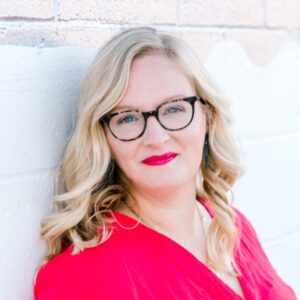Consultant. As a company with the word in our name, we also know how confusing it can be to define it. When we started Carex, it was our goal to harness the expertise of top talent for amazing companies, and we knew that many candidates — and companies — wanted a dose of flexibility with how they approached work and life.
Several years later, COVID-19 has further shifted the way we think about work — how we do it, how we share our expertise, and what options are out there to give ourselves space to think about how we fit work into our lives, not the other way around. Because of this, we’ve started to have many conversations with Carex alumni and new candidates, who are more open to consultant work than ever before. Contract consultant work has a lot of benefits — flexibility, the opportunity to test-drive a role and see if it’s a right fit for you, and building your network.
If you’ve found yourself wondering recently about contract work and whether it’s right for you, we recently sat down with two Carex consultants — one who’s still in his role and one who used her contract work for a springboard into her own business — to share some perspectives about consulting and what they’ve learned:
 Name: Joe Carlisle
Name: Joe Carlisle
Current Role: Skills Pipeline, Technical Skills Recruiter
What circumstances led you to explore being a consultant through Carex?
The company I was working for was mainly focused on the start-up space. When the pandemic hit, there was a significant slowdown in the business — and being in a commission-driven role, I began to see what other opportunities were out there. I saw Carex was hiring and I knew some people that worked there and liked it — so I applied.
Carex didn’t have a role open for me at the time but reached out a few weeks later to see if I was interested in becoming a consultant for a client of theirs. I was excited about the opportunity to work for this company and I never would have known about the opportunity if it wasn’t for Carex.
What are some of the benefits of consulting work?
It’s knowing that if a company shifts gears and the position ends, there’s a team that’s actively pursuing your next opportunity!
What did you learn — or take away — from your time as a consultant?
At the right company, being a consultant isn’t much different than being in a direct-hire role. I’m not treated as an “outside source,” but an additional valued member of the team.
After your consulting work, what was your next step? Did the opportunity lead to a full-time role at the company, or did you decide to do something different?
I’m still consulting with the client.
What advice would you give to anyone who might be interested in consulting work?
The leap isn’t as scary as you might think. One hesitation of working in a contract role is that there is an unknown as to how long you’ll be in that position. However, knowing there’s a team behind you that has a vested interest in making sure you have your next consulting role lined up is reassuring.
 Name: Melissa Ripp
Name: Melissa Ripp
Current Role: Owner & Founder, Peapod Marketing & PR Consulting
What circumstances led you to explore being a consultant through Carex?
Prior to dipping my toe into consulting, I had spent 15 years in marketing and communications roles where I worked for someone else — and I really wanted to strike out on my own, but was afraid to rip the Band-Aid off. At the time, I was in a communications leadership role at an education technology company, and I was working long hours. I wasn’t quite ready to launch into full-time self-employment and started to research other options that might give me the stability of full-time work while giving me a bit more free time to build my business out and start taking on more freelance projects — at that point, Peapod was squarely a side hustle.
I had known about Carex for a bit and had been chatting with Theresa Balsiger here and there for a few months when I noticed they were hiring a full-time copywriter for a six-month contract role for a client (which I later found out was CUNA Mutual Group). I contacted her, and the hiring process was fast. A few weeks later, I gave my notice at my job!
What are some of the benefits of consulting work?
So many! In my particular situation, my contract was hourly for 40 hours a week. I was working much more in my full-time job, and this extra time gave me time to take a breath and start planning how to operate Peapod as a full-time business. Independent of that, joining CUNA Mutual Group at the time I did was incredibly valuable. They were working to build out an in-house agency — with brand managers, account managers, graphic designers, and copywriters. It was an opportunity to get an understanding of an agency — one that operated in an agile environment. I also met a ton of great people during my tenure there — many of which I’m still in touch with today.
What did you learn — or take away — from your time as a consultant?
I had a misconception prior to my experience with consulting work that it was more like “temp work” — but I was never treated like a temp or someone that wasn’t 100% part of the team. I also realized that there are so many different ways to be a consultant. After I completed my six months at CUNA Mutual, I kept in touch with my colleagues there. Ten months later, I started working on another team there in a more limited capacity (still through Carex) in addition to my Peapod work. Just because you end your contract doesn’t always mean it’s the end of the relationship.
After your consulting work, what was your next step? Did the opportunity lead to a full-time role at the company, or did you decide to do something different?
I was asked to stay on at the company — and I even explored a different role, which I interviewed for — but in the end, I decided that I didn’t want to delay my dream of growing my own business any longer! I finished up my role at CUNA Mutual the day before Thanksgiving 2018 and will be celebrating three years of full-time self-employment in about a week.
What advice would you give to anyone who might be interested in consulting work?
Until I started working with Carex, I didn’t consider myself a “consultant” — part of it was that I didn’t fully believe that I was an expert in my field. If that’s tripping you up, too — I say go for it. You are absolutely an expert, Carex works with some fantastic partners who are committed to doing big things, you’ll meet a bunch of great people, and even if you don’t get hired or stay on for a full-time role, there’s still so much value in consulting for the networking and relationships alone.
The other thing I’ll say: Carex has your back and is genuinely committed to your success. They care just as much about the relationship they have with you as they do about the ones with their partners — and I’m happy to have them in my corner.

